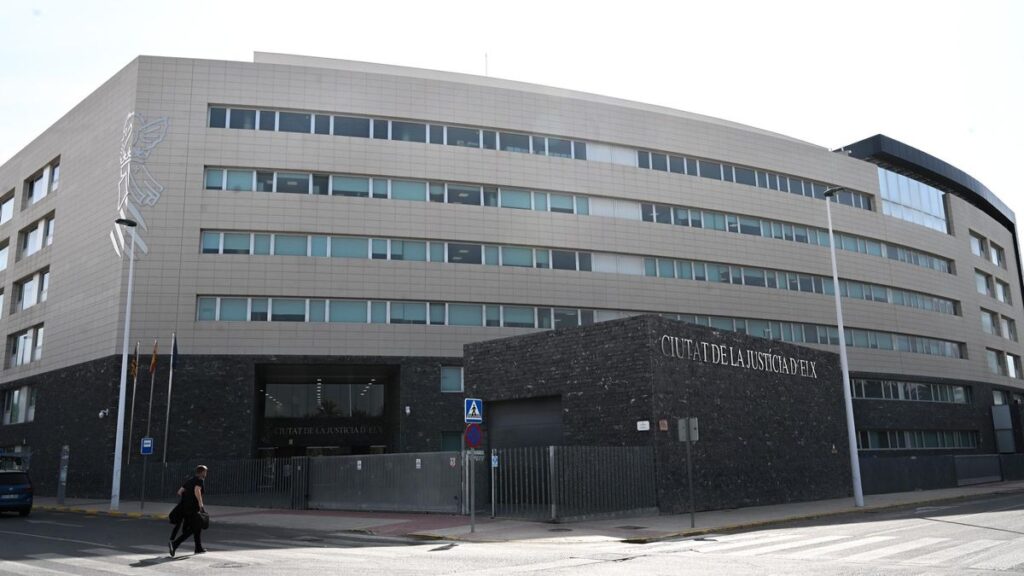
And prosecutor's procedural error has caused the acquittal of a man accused of abusing a young woman with a disability in Pilar de la Horadadaaccording to the sentence to which this newspaper has had access. Although the defendant, who was asked eight years and six months in prisonadmitted at the time to having had a consensual relationship with the victim, at the trial he took advantage of his right not to testify and remained silent. In these cases, the parties have the option of having their previous statements read. However, the prosecutor did not request it in this case and that has meant that her previous testimony could not be valued as evidence. After detecting contradictions in the story of the victim and her sisterthe Seventh Section of the Alicante Court moved to Elche concludes that, given the doubts, the acquittal of the accused is appropriate. Added to this is that the court has assessed that the fact that, although the victim suffered from a mild intellectual disability, this did not imply that she did not have the capacity to provide valid consent to have sexual relations.
The events occurred on the night of October 23, 2021at a dinner at the victim's house, 21 years old. The accused was a friend of her sister and that night he had invited her to dinner at their home in Pilar de la Horadada along with another friend. After dinner they moved to a piece of land adjacent to the home, where there was a warehouse and a swimming pool. When the sisters' friend left, the accused and the victim were left alone. The court considers that it has not been proven that in that short period of time the accused will take the opportunity to have sexual relations with the victim.neither in the bathroom nor the living room of the homejust as the young woman reported. During the trial, the accused pleaded not guilty and took advantage of his right not to testify, stating that he was only going to answer the questions of his defense, the lawyer Juan Bautista Díaz de Corcuera Bilbaowho did not ask questions. During the investigation of the case, he had assured that he had a consensual relationship with the victim, taking advantage of the fact that they had been left alone in the house when the sister left. However, since this statement was not intended to be read, it could not be assessed as evidence.
Contradictory stories
The court has found numerous contradictions in the victim's story, in the different appearances he has given throughout the procedure. At first, the doctors of the Torrevieja hospital He assured that there had been no penetration and that the accused only tried to take down his clothes. With that argument she refused to be recognized that same night. A version that later changed when she filed the complaint, where she narrates that the accused penetrated her on two occasions, at which time she He went blank and unable to react. The court considers that there are numerous contradictions in the different accounts offered by the victim about how the penetrations occur. Some first in the bathroom, others in the living room. It all ended because the sister surprised them on the couch in the middle of the sexual act, so they both ran out and got dressed. However, the sister, after having declared that she caught them together when she returned and that she was blank, later during the interrogation she stated that she did not remember what happened or how she found them. The court emphasizes that, although the victim's story has essentially been maintained, there are contradictions and ambiguities which makes them lack subjective credibility.
“Given the contradictions, we do not know if the events occurred as the complainant narrates, and we question the existence of the sexual relationship“says the sentence.
During the trial, the Prosecutor's Office asked to determine the extent of the victim's illness and whether it prevented him from giving a valid consent to have sexual relations with the accused. A request that for the court does not deserve a favorable reception either. The complainant suffers from mild-moderate mental retardation. The experts stated that the disability limited their ability to understand the risk, their critical judgment and their ability to react. For its part, in el psychological report regarding the veracity of the testimony and the ability to influence, it does not specify the mental age of the patient, which conflicts with the statement at the hearing of the expert, who stated at the trial that she had a mental age between 7 or 8 years, a fact that is not reflected in any of the reports.
The magistrates conclude that the victim “despite his mental handicap, He has social skills that allow him to function on different levels. Regarding his development on the sexual level, the reports have not confirmed the abolition of his faculties to discern in that area”, which is why they rule out that he could not provide valid consent. In this sense, they remember that the accused and victim had met that same day so he could not know anything about this disability either.
Subscribe to continue reading